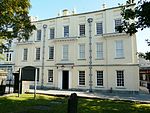
Until 1974, Brecknockshire, also formerly known as the County of Brecknock, Breconshire, or the County of Brecon, was an administrative county in the south of Wales, later classed as one of the thirteen historic counties of Wales. Named after its county town of Brecon, the county was mountainous and primarily rural.
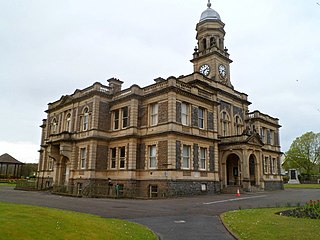
Llanelli is a market town and community in Carmarthenshire and the preserved county of Dyfed, Wales. It is located on the Loughor estuary and is the largest town in the county of Carmarthenshire.

Carmarthen is the county town of Carmarthenshire and a community in Wales, lying on the River Towy 8 miles (13 km) north of its estuary in Carmarthen Bay. The population was 14,185 in 2011, down from 15,854 in 2001, but gauged at 16,285 in 2019. It has a claim to be the oldest town in Wales – Old Carmarthen and New Carmarthen became one borough in 1546. It was the most populous borough in Wales in the 16th–18th centuries, described by William Camden as "chief citie of the country". Growth stagnated by the mid-19th century as new settlements developed in the South Wales Coalfield.

Llandeilo is a town and community in Carmarthenshire, Wales, situated at the crossing of the River Towy by the A483 on a 19th-century stone bridge. Its population was 1,795 at the 2011 Census. It is adjacent to the westernmost point of the Brecon Beacons National Park. The town is served by Llandeilo railway station on the Heart of Wales Line.

Llangennech ( ) is a village and community in the area of Llanelli, Carmarthenshire, Wales, which covers an area of 1,222 hectares (4.72 sq mi).
This article is a timeline of Llanelli history. For a full article on the town, see Llanelli.
Ffairfach is a village one-half mile (0.80 km) south of the market town of Llandeilo in the eastern part of Carmarthenshire, Wales. It is close to the confluence of the Afon Cennen and the River Towy. Population is 516 according to 2017 census.
The Vale of Glamorgan has 740 listed buildings of which 4% are Grade I listed, 10% Grade II* listed and remainder Grade II listed.

There are around 1,000 listed buildings in Cardiff, the capital city of Wales. A listed building is one considered to be of special architectural, historical or cultural significance, which is protected from being demolished, extended or altered, unless special permission is granted by the relevant planning authorities. The Welsh Government makes decisions on individual cases, taking advice from the heritage agency Cadw, the Royal Commission on the Ancient and Historical Monuments of Wales and local councils.

In the United Kingdom, the term listed building refers to a building or other structure officially designated as being of special architectural, historical, or cultural significance; Grade I structures are those considered to be "buildings of exceptional interest". Listing was begun by a provision in the Town and Country Planning Act 1947. Once listed, strict limitations are imposed on the modifications allowed to a building's structure or fittings. In Wales, the authority for listing under the Planning Act 1990 rests with Cadw.
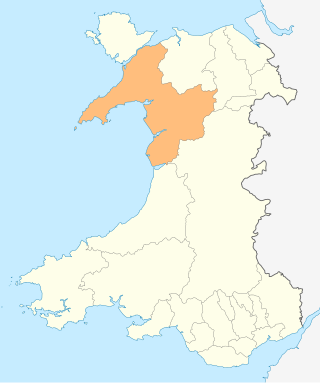
In the United Kingdom, the term listed building refers to a building or other structure officially designated as being of special architectural, historical, or cultural significance; Grade I structures are those considered to be "buildings of exceptional interest". Listing was begun by a provision in the Town and Country Planning Act 1947. Once listed, strict limitations are imposed on the modifications allowed to a building's structure or fittings. In Wales, the authority for listing under the Planning Act 1990 rests with Cadw.

Thomas Thomas was a Welsh church minister and chapel architect, also known as Thomas Glandŵr. He is described as "the first national architect of Wales" and the "unchallenged master of chapel architecture in Wales in the 1860s".
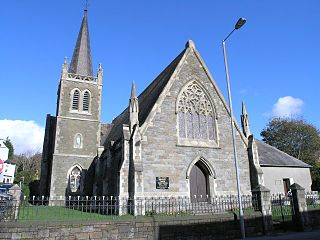
Hall Street Methodist and United Reformed Church is a local ecumenical partnership of two denominations in the original Methodist chapel in the town of Llanelli, Carmarthenshire, Wales. The present building was built in 1856 and is located in Hall Street. The chapel was designated as a Grade II listed building on 3 December 1992.

Park Congregational Chapel is a Congregational chapel in the town of Llanelli, Carmarthenshire, Wales. It was built in 1864 and is located at the junction between Murray Street and Inkerman Street. It was designated as a Grade II listed building on 3 December 1992.
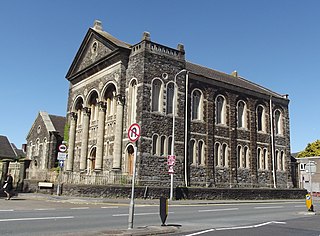
Tabernacle Chapel is an Independent (Congregational) chapel in the town of Llanelli, Carmarthenshire, Wales. It was built in 1872 and is located at 17 Cowell Street. It is a Grade II* listed building.

Zion or Seion Baptist Chapel is a Baptist chapel in the town of Llanelli, Carmarthenshire, Wales. It was built in 1857 and is located at Island Place, close to the junction of Water Street with Upper Park Street.

St Elli Church, also called St Ellyw's Church is an Anglican parish church in the town of Llanelli, Carmarthenshire, Wales, dedicated to Saint Elli. It was built in the medieval period, possibly in the 15th century, and is located in Bridge Street, opposite Llanelly House. It was designated a Grade II*-listed building on 30 November 1964.

Bethel Baptist Chapel is a Baptist chapel in the town of Llanelli, Carmarthenshire, Wales. It was built in 1840 and is located on Copperworks Road. It had a larger seating capacity than most Llanelli chapels and in 1905 could seat 850 persons.
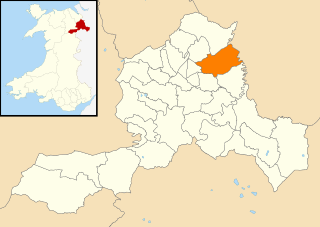
In the United Kingdom, the term listed building refers to a building or other structure officially designated as being of special architectural, historical, or cultural significance; Grade II structures are those considered to be "buildings of special interest which justify every effort being made to preserve them". Listing was begun by a provision in the Town and Country Planning Act 1947. Once listed, strict limitations are imposed on the modifications allowed to a building's structure or fittings. In Wales, the authority for listing under the Planning Act 1990 rests with Cadw.

